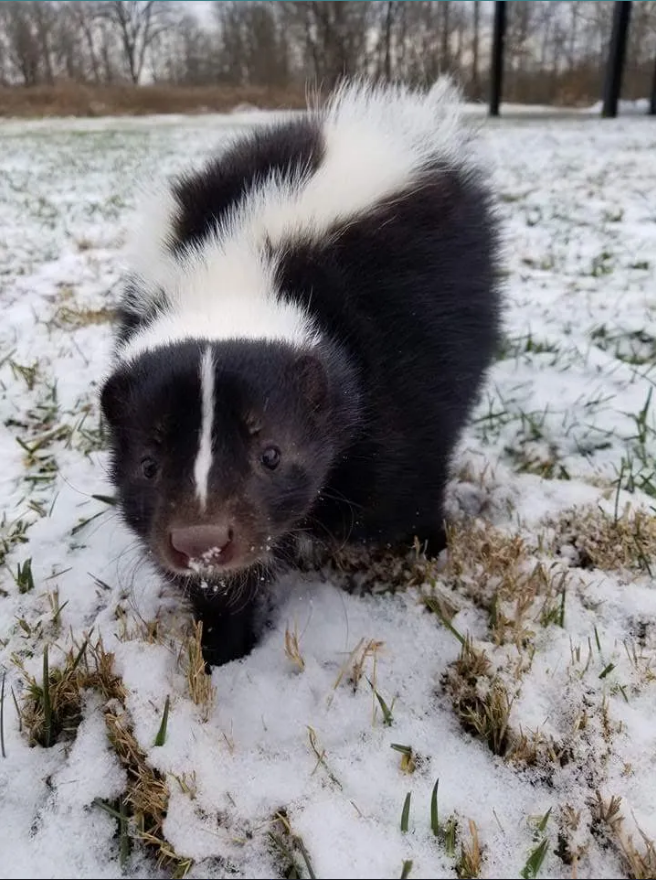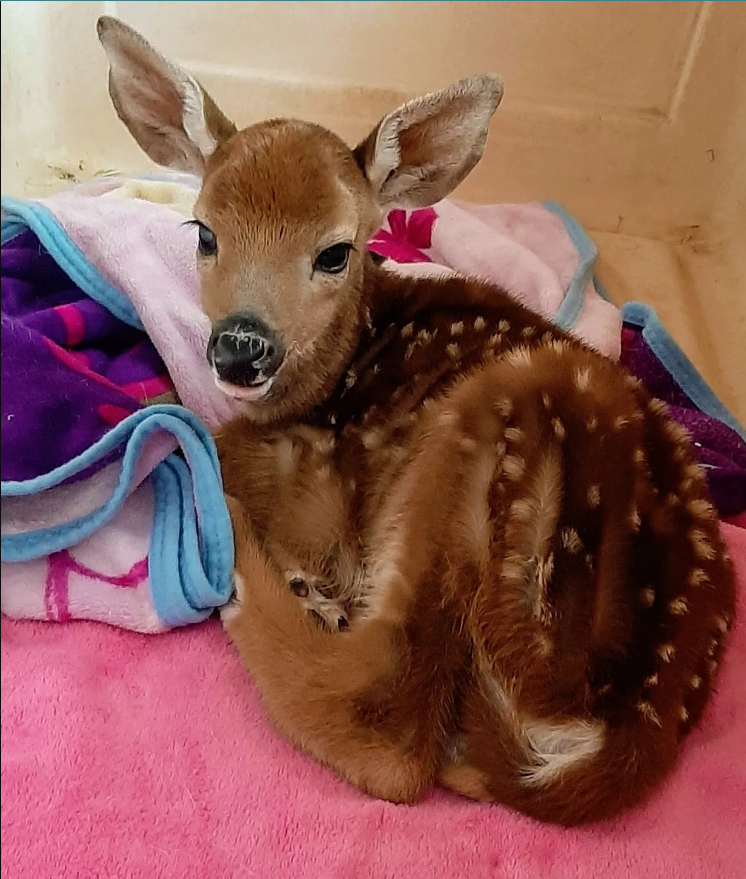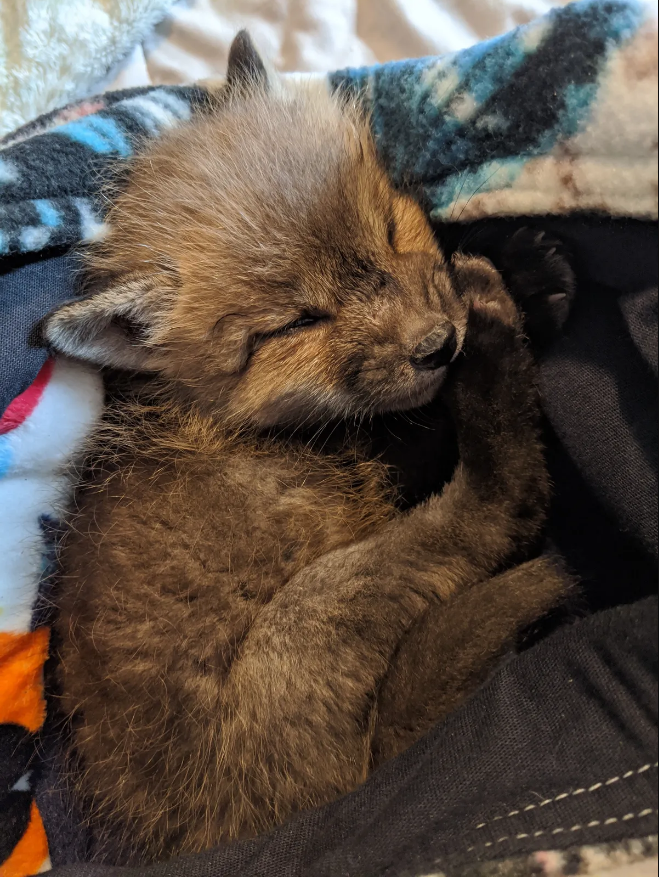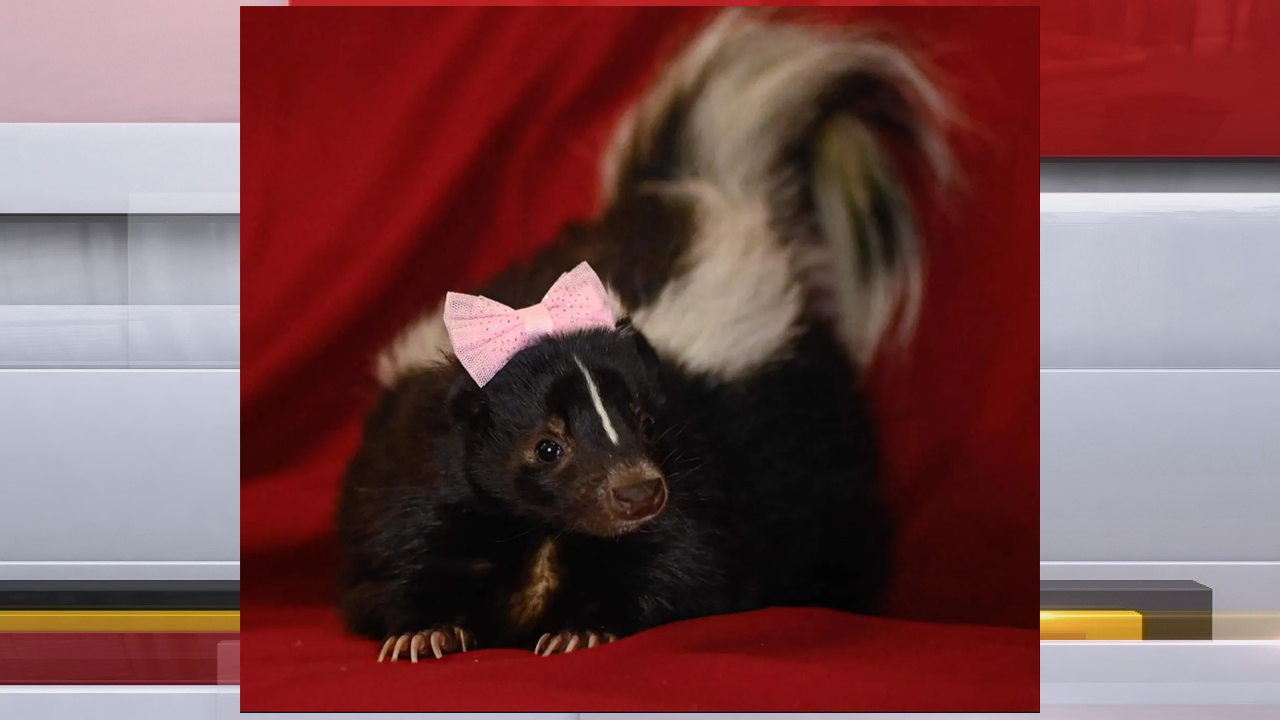‘Clearing the Air’: How a Hendricks County rescue works to destigmatize skunks
NORTH SALEM, Ind. (WISH) — When you think of animal rescues, you might imagine dogs in kennels or cats lounging in cat towers. They are places where you find your best friend, volunteer your mornings on the weekend, or donate bags of food when you can.
Animal rescues are common, but it isn’t every day you hear the same idea of an animal rescue for a more interesting friend – a skunk.
Julie McLaughlin is the co-founder of the Indiana Skunk Rescue, a nonprofit wildlife rehabilitation center, whose specialty is skunks.
McLaughlin says that her passion for skunks has been lifelong. “I’ve always wanted a skunk. They’re so incredibly friendly and docile.”
Her desire to rescue skunks began in 2017 after McLaughlin adopted a blind skunk, but she ran into problems when looking for resources to better care for her pet.
“There are only two other skunk rescues in the United States,” McLaughlin said. “I just couldn’t find the information.” After running into dead ends, McLaughlin took to educating herself on wildlife care.
After much time and preparation, she soon acquired the proper licenses through the Indiana Department of Natural Resources to rehabilitate wildlife, and started the rescue in 2018.
The Indiana Skunk Rescue is the only skunk rescue licensed to care for both domesticated and wild skunks in the United States, according to McLaughlin. Despite the name “skunk rescue,” McLaughlin also rehabilitates deer, foxes, raccoons, possums, and more.
McLaughlin says while her love for the animals stays strong, running the rescue has not been easy.
While she uses the organization as a way to rescue skunks and other wildlife, she also uses it to educate the public and break down the stigma surrounding skunks, which is one of the biggest challenges the rescue faces.
McLaughlin is based in North Salem, a Hendricks County community that is about 40 miles northwest of Indianapolis. She provides wildlife rescue services statewide. She says her phone rings off the hook, mentioning at the time of the interview that she had already gotten several calls that morning.
“People are so afraid of skunks. I’m amazed by the amount of calls I get from the police because people have called 911 to say they saw a skunk and were scared,” McLaughlin said.
McLaughlin says that skunks are misunderstood. “There are a lot of misconceptions about skunks. I believe they’re like old wives’ tales we were told so we’d leave them alone.”
Being sprayed by a skunk seemed like a common occurrence when watching movies as a kid, but it is very unlikely to happen. Skunks, McLaughlin says, are docile and calm by nature, only spraying at others when they are severely stressed or afraid.
“They will not come at you and bite you, and they do not want to spray you. For them, spraying is their last resort,” McLaughlin said.
With the fear of skunks also comes the lack of education around them, which is another challenge the rescue faces. The rescue has hosted educational programs in the past, partnering with local 4-H and Scouts chapters to educate youth on skunks and other wildlife, but hasn’t been able to host an event since before COVID.
As Indiana is one of 17 states that allow residents to own a domesticated skunk, according to McLaughlin, and she says that if you are considering adopting a domestic skunk, you need to do your research.
“It’s not like owning a cat or dog, it’s a lot of hard work. Their diet has to be perfect … you have to find a trusted exotic vet, there’s limited boarding – it is a large responsibility to prepare for,” McLaughlin said.
With the arrival of spring on March 20, McLaughlin warns those who may encounter skunks and other wildlife in nature.
“It’s baby season. If you see a baby skunk or baby wildlife and you think it might be abandoned, call the rescue. Do not take it home with you, and don’t needlessly kill the animals either,” McLaughlin said.
Indiana Natural Resources allows the possession of a wild animal as a pet, they do not allow possession of that animal within six months of its birth.
To add a disheartening blow to the string of obstacles, funding has always been a difficulty the rescue faces.
Wildlife rescues, according to McLaughlin, are unable to receive funding from outside resources, paying for the majority of the rescue’s needs out-of-pocket. McLaughlin covers most of the costs on her own.
McLaughlin says that her dream for the rescue is simple: She wants the animals to have a place of their own.
She says that the animals that she cares for are in her home. Her goal for this year had been to build an addition to her property designed specifically for the animals, but, without the funding, that goal has been put on hold.
“With how expensive everything is, it’s just not going to happen this year,” McLaughlin said.
McLaughlin says that she is seeking volunteers who would be willing to dedicate time to the rescue, assist with the organization’s social media, and more. The Indiana Skunk Rescue is also accepting monetary donations and items from the organization’s shopping wishlist.
In hopes to become involved in the community again, McLaughlin has several events planned for the rescue, including a volunteer meeting and a beauty pageant that will take place at the Boone County Fairgrounds in May.
McLaughlin said in a final statement, “It’s hard to get people to rally around wildlife,” and she hopes that that is able to change.
If you are interested in learning more information about becoming a wildlife rehabilitator or a volunteer, the Indiana Skunk Rescue is holding an information meeting at 2 p.m. April 1.
If you would like to make a donation to the Indiana Skunk Rescue, monetary donations may be sent to: 4401 IN-75; North Salem, IN 46165. You can also support the organization by donating to their GoFundMe. For more information on the Indiana Skunk Rescue, domestic skunks, wildlife education, or other ways to donate, visit their website or call/text them at 317-273-9288.





(Photos Provided/Indiana Skunk Rescue)

